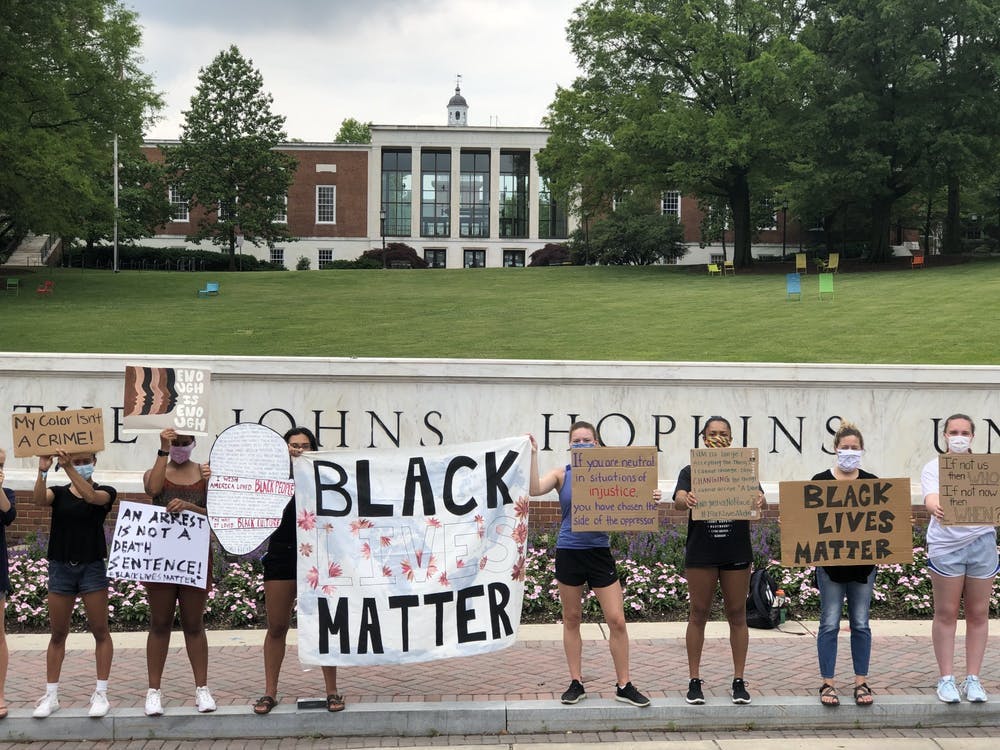The Black Student Union (BSU) and the Black Student Athlete Association hosted a panel discussion on Feb. 26 about students’ role in transformative justice both on and off campus.
The event, sponsored by the Stavros Niarchos Foundation (SNF) Agora Institute, featured Baltimore Mayor Brandon Scott’s senior advisor Marvin James, activist Bilphena Yahwon and Reverend Kobi Little, who graduated from Hopkins in 1994. Scott was supposed to speak, but he was unable to attend due to an emergency.
James spoke about his experiences working with people of different racial backgrounds to create opportunities for Black community members.
“I follow in the steps of [James] Baldwin, who truly believed in absolutely being able to bring in diverse voices to be able to help toward that deliverance,” he said. “However, he was very true to the belief that Black people absolutely should be the leaders in their own deliverance.”
According to Little, his motivation behind getting involved with activism was that, as a student in Hopkins in the early 90s, he was constantly challenged on campus by people who didn’t believe he belonged there and endured intellectual assaults by both students and faculty.
He emphasized that the discrimination was aimed toward not just Black students, but the entire surrounding Black community. Black staff on campus were not permitted to access the library, gym or any place on campus that was not mandatory for their jobs.
Little serves as the dean of the Justice Chapel, president of the Baltimore City NAACP and the vice president and political action chairman of the NAACP Maryland State Conference.
In an interview with The News-Letter, junior Tobi Ogunbiyi described Little’s comments as extremely powerful.
“It was pretty profound how Reverend Little was able to bring in his past experiences in dealing with Hopkins and restrictions in the past and how it relates to the recent struggles that students have had to undertake,” he said. “I’m glad this program gave me more of an insight into transformative justice and how we have to go about achieving it for ourselves.”
Yahwon, a Baltimore-based writer and abolitionist from Liberia, described her experience as a student organizer at Towson University. Yahwon led a campus movement at the university that demanded the college to divest from prison labor.
She questioned the need for Hopkins to create a private police force and what that would mean for Black people on campus.
“If we understand the ways in which Black students are consistently criminalized and are the most targeted by police forces anywhere they are present, then why would we create one on campus?” she said.
Junior David Eke felt that the event revealed the power that students possess regarding transformative justice.
“This meeting was such a reminder that we, as students, have more power than we think and that we are capable and equipped to make the change needed on campus,“ he said.
BSU President Ozioma Anyanwu believes that the panelists raised important issues relevant to students.
“With a topic such as transformative justice, it can be difficult pinpointing where to start and what to emphasize, but Bilphena, particularly, delivered it well when she discussed having specific action items as students that we should aim toward in terms of trying to make real, consistent change at the University,” she said. “I am definitely looking forward to taking action based on what I heard tonight.”
Chris H. Park, a member of the SNF Agora Institute’s Student Engagement Board, is a News & Features Editor for The News-Letter. He did not contribute reporting, writing or editing to this article.





